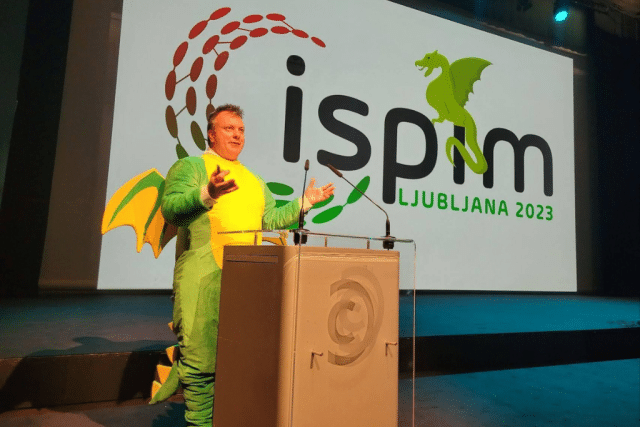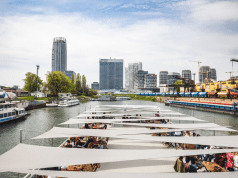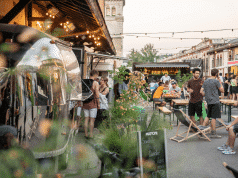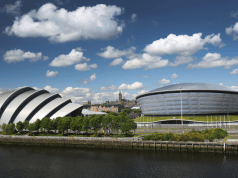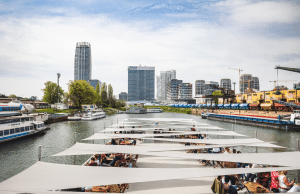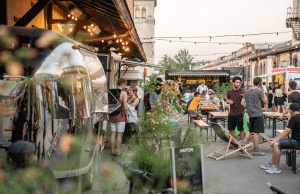Attendees had the chance to network with innovation professionals from academia, industry, consulting and the public sector in a truly diverse event with people attending from across the globe. They partook in workshops, hot-topic discussions, discussion panels, and sessions on the latest academic research results and industry cases.
The leading innovation thought leaders took the stage, discussing the thriving innovation ecosystem in Slovenia. Iain Bitran, the Executive Director at ISPIM – The International Society for Professional Innovation Management, discussed the importance of the event and the role of a circular economy in our society. In addition, Iain Bitran explained why Ljubljana is a case example of a regenerative city and why they selected Cankarjev dom for their 2023 conference.
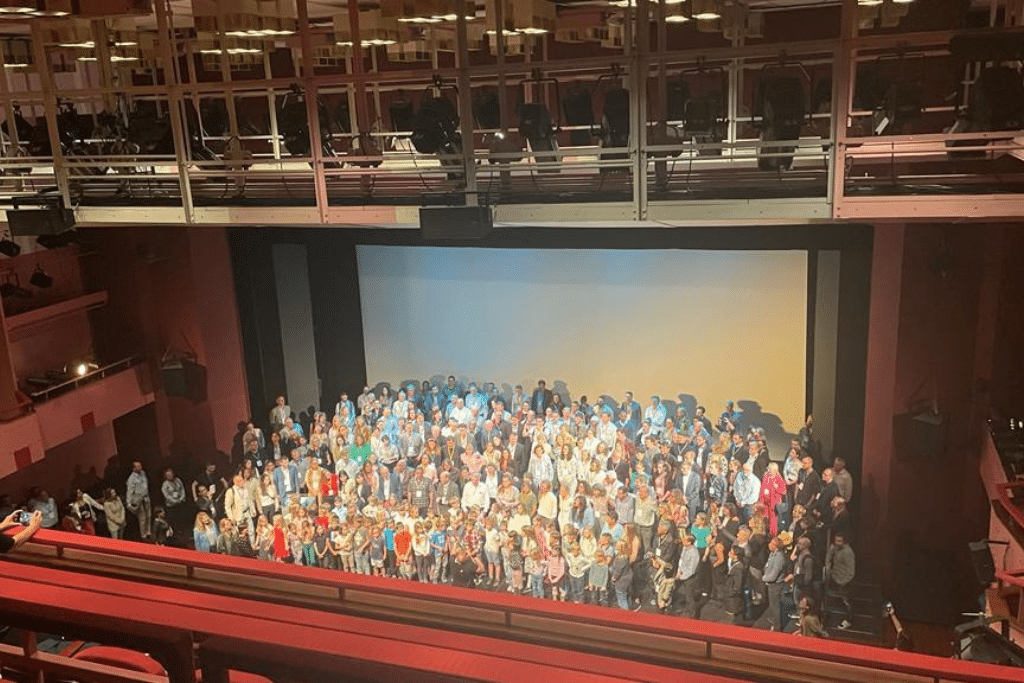
Q1: Why did you select Ljubljana and Cankarjev dom for your 2023 Innovation Conference?
The reason we chose Ljubljana is due to a number of factors.
- We decided we would like to run a conference with the theme of Innovation and Circular Economy as we are creating a new Special Interest Group on this global hot topic and have been working with Allen Alexander of the University of Exeter Centre for Circular Economy in the UK and Ladeja Godina Košir of Circular Change in Slovenia.
- Due to our long term relationship we have with Jan Oršič – Head of Ljubljana Convention Bureau – who explained that Ljubljana was the European Green Capital in 2016, we thought Ljubljana would be a perfect fit.
- We were looking for a small, compact city where we could organise innovation tours to the likes of Technology Park Ljubljana, RCERO Ljubljana and The Chamber of Commerce as well as organising some green and social innovation tours such as Invisible Ljubljana (walking tour through Ljubljana with former homeless guides), Green Story of Ljubljana (Guided walking tour through Ljubljana showcasing many green projects in the city), Climate Cycling Excursion Ljubljana (9km cycle around Ljubljana – Learn about sustainable mobility, visit a zero waste shop, an experimental sustainable production place, test the library of things and round off with a coffee with fair origin)
We chose Cankarjev Dom as it was the perfect size for our conference and is centrally located. We also like their sustainability policies. In addition, we worked with Jezeršek Catering as we were impressed with their food waste policy of withholding 10% of all food so it can be donated to local homeless charities.
Q2: How important is adopting a circular economy in the post-pandemic world?
Adopting a circular economy post-pandemic is crucial. The pandemic exposed flaws in our linear economic model, emphasising the need for sustainability and resilience. A circular economy, focused on reducing waste and reusing resources, offers a compelling solution. It conserves resources, minimises waste, and lowers our carbon footprint. Shifting to circular practices fosters a regenerative economy, creating jobs, driving innovation, and promoting sustainable consumption. It enhances our resilience for future crises, ensuring a sustainable and inclusive world. Embracing a circular economy is both necessary and morally imperative for a better post-pandemic future.
Q3: Innovation is one of the main topics of your conference. Does Slovenia have a thriving innovation ecosystem, and what propels it?
Slovenia has a vibrant innovation ecosystem that has gained global attention. There are several factors contributing to its success. Education and research are at the core, fostering a culture of creativity and problem-solving. The country’s supportive business environment encourages entrepreneurship and innovation through various initiatives and incentives. Collaboration among academia, industry, and government is facilitated through networks and innovation hubs. Slovenia’s strategic location, well-developed infrastructure, and access to European markets create favourable conditions for business growth and international collaboration. All of these elements make Slovenia a dynamic player in the global innovation landscape.
Q4: Did any presentation personally compel you to think differently, outside the box?
Absolutely! The session on “Start to Enjoy Your Sustainable Lifestyle” where we heard about how the EU is supporting citizens to adopt a sustainable lifestyle and develop skills needed for green and circular transformation. This session included Aljoša Bagola – Speaker, creative director and best-selling author, Ladeja Godina Košir – Founder of Circular Change and Co-chair of ECESP and Jerneja Jug Jerše – Head of European Commission Representation in Slovenia.
Q5: In light of the topic of circular economy, is Ljubljana a case example for regenerative destinations? Do you see regeneration as the future of our society?
Ljubljana stands out as a great example of a regenerative destination in the circular economy. The city has made impressive progress in embracing sustainability and integrating circular principles into its urban life. Ljubljana’s commitment to preserving the environment, reducing waste, and adopting sustainable urban planning has gained global recognition, including being named the European Green Capital in 2016.
The city’s efficient waste management, emphasis on renewable energy, promotion of active transportation, and creation of green spaces showcase its dedication to regeneration. Ljubljana’s success serves as an inspiration to cities worldwide, highlighting the potential of regeneration for sustainable development. As we confront climate change and resource scarcity, embracing regenerative practices holds great promise for the future, allowing us to build resilient communities that prioritize the environment, social equality, and economic well-being.
Q6: Cankarjev dom strives to be green and sustainable, not least with its rooftop beehives. Do you believe such venues will help facilitate the development of sustainably-aware destinations and contribute to establishing a circular economy worldwide?
Absolutely! Green conference venues play a crucial role in building sustainable destinations and fostering a worldwide circular economy. These venues prioritise eco-friendly practices, inspiring others to follow their lead. By hosting events in these venues, we raise awareness and promote collaboration on sustainable solutions. As the demand for green venues grows, we accelerate the shift towards a circular economy, conserving resources and reducing waste. Together, we can make a positive impact on our planet!


